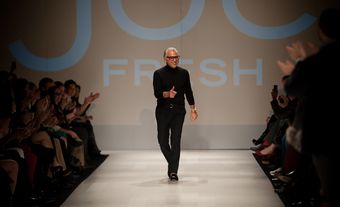Benjamin Dunkelman, army officer, businessman, sailor, arts patron (b at Toronto 26 June 1913; d there 11 June 1997). Benjamin Dunkelman was the son of Polish-Jewish immigrants who built Tip Top Tailors, a prominent Toronto haberdashery firm. Dunkelman and his siblings grew up in relative luxury on an estate northeast of Toronto. He attended Upper Canada College, where he distinguished himself in football, and spent a good deal of his time socializing, sailing, and playing sports. Owing to Depression-era losses, however, the family saw economic hardship and his father was forced to sell the estate, Sunnybrook Farm, now the site of Sunnybrook Medical Centre. Dunkelman reassessed his life and resolved to make some improvements, one of which was inspired by his mother. Indeed, it changed the course of his life.
Dunkelman's mother was a committed Zionist, and at 18 Dunkelman went off to work on a kibbutz in Palestine, at that time still under a British mandate through the League of Nations. He was employed for part of the time as a shomer, or watchman, part of the armed patrols that kept the area free of marauders and thieves. He returned to Toronto in 1932 to assist his father, but went again to Palestine in the late 1930s to develop new settlements with colleagues from America, the UK, and South Africa.
Back in Toronto when the Second World War broke out, Dunkelman attempted to enlist in the Royal Canadian Navy, but an atmosphere of anti-Semitism that prevailed in the RCN at the time precluded a naval career. Enlisting in the army, he joined the Queen's Own Rifles of Canada and rose in the ranks from private to major by the end of the campaign in Europe. He was in the second wave to hit the Normandy beachhead on 6 June 1944 (see Normandy Invasion) and earned numerous commendations and a Distinguished Service Order for his service in the Hochwald campaign. He also fought in the difficult campaigns in northern France, Belgium, the Netherlands and Germany, including bloody battles at the Falaise Gap and the Scheldt Estuary that led to the critical port of Antwerp.
After the war, Dunkelman was offered command of the Queen's Own Rifles but declined owing to business interests at home and his concerns regarding the trouble brewing at the time in Palestine. In 1947, he journeyed there and took command of a mortar unit in the Mahal, the legion of foreign volunteers - both Jewish and Christian - fighting for the establishment of the nation of Israel against vastly superior forces from six Arab countries.
Dunkelman's skill with the mortar brought him to the attention of the Israeli High Command, and he was instrumental in the breaking of the siege of Jerusalem, a city of critical moral and strategic value to the new nation. He was given control of the Seventh Brigade with which he took the Galilee and the city of Nazareth, one of the region's most politically valuable centres.
Tired and suffering from malaria and newly married to a fellow volunteer, Dunkelman turned down the offer of a commission in the peacetime Israeli Army. He returned instead to Toronto to resume his position in the family company, which continued to grow until it he sold it to Dylex Limited in 1967. He later constructed both the Cloverdale Mall as well as the Constellation Hotel, and from the 1960s to the 1980s he and wife Yael ran several restaurants as well as the Dunkelman Gallery, which became well known as a showcase for Canadian and international artists.
In his seventies, Dunkelman settled into comfortable retirement in Toronto. He continued to support artistic and political causes, including the Jewish War Veterans of Canada, and to sail at every opportunity from the Island Yacht Club, an organization he founded as a response to the racist and anti-Semitic membership practices that continued within existing clubs.

 Share on Facebook
Share on Facebook Share on X
Share on X Share by Email
Share by Email Share on Google Classroom
Share on Google Classroom
